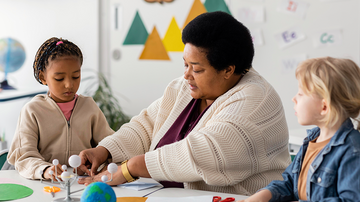The role of teachers in primary school education is immensely important. They are the first point of contact for many children, and serve as mentors, guides, and confidants. But there’s a shocking gap in representation when it comes to black teachers in primary schools. Top education experts recently called for more black senior leaders in British schools after figures revealed that 92.9% of headteachers were White British — while only 0.2% were from a black African background, and 0.7% were of black Caribbean heritage. This lack of diversity has an enormous impact on the students who attend these schools, particularly those who come from minority backgrounds or communities of colour.
The Impact for Students — Especially Black Students
When children see their teachers represented by those from different racial backgrounds, it gives them a sense of empowerment and belonging that can be hard to find elsewhere. It lets them know that they can achieve anything they set their minds to and encourages them to dream big! Additionally, having more diverse teachers leads to an increase in cultural awareness and understanding among students as well as staff members; everyone becomes more attuned to each other’s experiences, values, stories and perspectives — leading to greater appreciation and respect for one another's differences.
It goes without saying that when it comes to teaching children about race and racism, it’s essential that the teacher reflects the student population in terms of ethnicity — especially considering 8.3% of primary students are Black or Black mixed-race according to recent data. Having teachers who are able to understand the unique challenges faced by minority communities is key if we want our kids' learning experience to be meaningful, equitable and effective!

Representation Matters Now More than Ever
In light of recent events surrounding systemic racism and police brutality against people from minority communities across the globe , having a diverse educational setting has never been more crucial. We need our teachers now more than ever—to help create an inclusive environment where all students feel safe expressing themselves without fear; where every student can relate their own experiences with what they're learning in class; where everyone is inspired by positive role models who look like them; where students feel empowered knowing they have allies at school who will listen attentively when something is wrong; where everyone feels seen no matter what race or background they come from!
Conclusion:
By increasing diversity among educators within our primary schools we are giving children the opportunity to grow up feeling empowered instead of oppressed because their teacher looks like them too! Representation matters now more than ever before—and we must actively work towards making sure our classrooms reflect diversity just as much as our student populations do if we want kids to have equitable learning experiences regardless of their race or culture! Representation isn't just about numbers — it's about creating a safe space for every person so that everyone can reach their full potential without feeling judged or excluded based on skin colour alone! Let’s make sure every child knows that their voices matter too!




